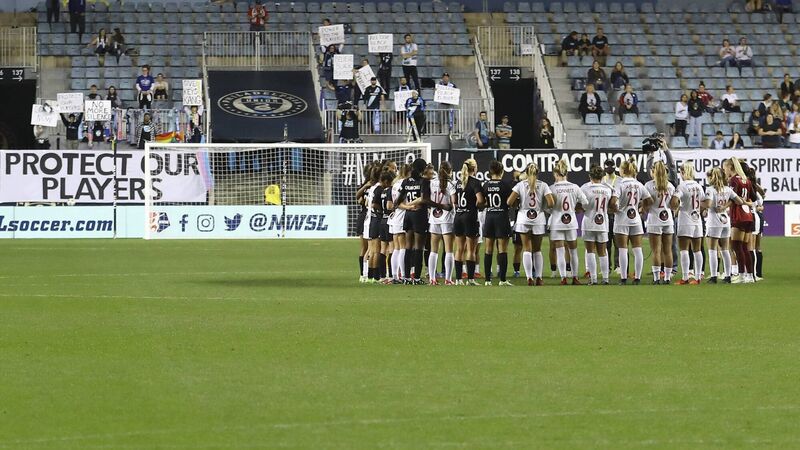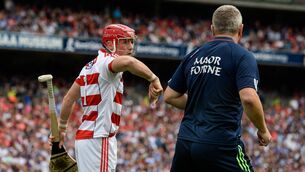John Riordan: US soccer teams show unity in a time of hurt

Washington Spirit and NJ/NY Gotham FC players meet at midfield during the sixth minute in solidarity following allegations of abuse in the National Women’s Soccer League. Picture: Mitchell Leff
It had taken six years for Mana Shim and Sinead Farrelly to make public the alleged abuse they suffered at the hands of their former professional soccer coach, Paul Riley.









